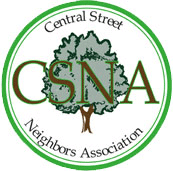When is a Budget Workshop a "Workshop?"
I had the opportunity to attend this past weekend’s 2009-2010 budget workshop conducted by City staff for both the City Council and interested citizens. The work and effort put forth by the staff along with their involvement and willingness to address all comments and questions should certainly be commended.
The “workshop” did not lack data, information and knowledgeable staff. What it did lack was a central question.
Here are a few highlights:
• The preliminary budget proposal calls for a $1.8 million dollar deficit in the City’s General Fund. This is a deficit with a recommended 4.9% increase in our property tax bill. (The proposed increase equates to about $96 on a $10,000 tax bill.)
• A 4.9% increase means approximately $1.8 million to the City - $200,000 for the General Fund and $1.6 million for debt services and Pension Funds.
• To cover the proposed deficit and pay an additional $4.5 million toward the Fire and Police Pension Fund liability, the City will dip into reserves. This will bring reserves down to about 13% of operating expenses from 19%. Budget policy sets the minimum at 8.33%. (One major problem away from the minimum.)
• A leading hit to projected revenues is with Property Tax Transfers – projected to be $700,000 lower next year.
• The leading contributor to project expenses relate to staff costs – cost of living increases and health insurance increases.
All in all, a scene we will surely see in cities and towns across the Nation. The troubled economy is playing a leading role and the ripples can be felt in almost every City fund and operating center.
We are facing an unprecedented era in scarcity of resources. Finding solutions must go beyond merely assembling smart people. We must focus our intellectual capital through clear and concise direction. This is the role of the City Council. It is to define “the box.”
We often hear that creativity, innovation, new ideas arise when you ask people to think outside the box. I believe this is fundamentally wrong. It is too vague, too broad. You have no way of knowing if your ideas are within the realm of possibility.
Here is a central question we should try to define the box:
“What ideas do we have for sustaining necessary City services without raising property taxes?”
This is where the conversation and thinking needs to starts. From there, we can offer a few more questions for our leaders to explore:
• How can the City engage in conversation with our non-profit partners in a manner that does not start with, “you must contribute your fair share”? Rather, how can we strive for an environment where partners are invited to work toward a common interest solution? We may want to start with full disclosure – what the Cities invests to support non-profit partners and what our partners provide the City in terms of volunteerism, intellectual capital, and quality of life. It is only from a foundation of trust that we can explore how our partners may be able to take on City services or volunteer payments in lieu of taxes.
• Should we reduce wage increases from 5% to 3% (a savings of nearly $1 million dollars)? To answer, we will need to undertake strong negotiations with labor groups. Our neighbors are losing jobs, equity and retirement funds daily. Should we really be asking people to pay more to support merit increases and manage the Pension Fund issue at the risk of creating a climate of cynicism beyond repair?
• Should we just say “no” to the increasing fees we will be asked to pay the State agency that manages Pension funds because their reserves are decreasing slightly below 100%? The City projects this will be a $250,000 increase over last year.
• What steps can we take to create a measurable and accountable plan to achieve our desired emissions reductions, seize opportunities to build and promote transit and infrastructure projects, and create incentives to attract local and national business? We do not face a short-term budget issue. We must find a pathway to easing the burden of our residential taxpayers .
This is the budget workshop we need. One where leaders say, “here is what we need to solve for,” and then brings people and staff together for thoughtful conversation and ideas.
This is how I look at issues. I start by seeking the right questions and then create the environment for ideas to come forward. As Alderman, my responsibility will be to solicit and find the best ideas to support and grow our community.
Christopher Hart for 6th Ward Alderman
- chris_hart's blog
- Log in to post comments

Comments
JunadRizki
Tue, 01/13/2009 - 20:29
Permalink
All well and good - the city is running out of funds
Chris - the city has two choices - tax us more - or make cuts.
Which is your choice?
We don't need alot more talk.
Do you understand how the organization runs?
Do you understand what and how the different city department operate?
Can you challege the department heads to make cuts and quesition what they are doing?
Currently the Council and city manager are saying NO cuts - so Chris what are they doing - raising taxes and draining down the reserves.
How long do you think that will last? ( my guess just this budget cycle)
If you were elected it is likely next year they will have to raise taxes very high or make many cuts.
It is very easy to keep raising taxes that is what the current group has done for years - next year it may not be so easy- so will you have the stomach to make the cuts?
Chris who ever is elected - will have to face the cuts.